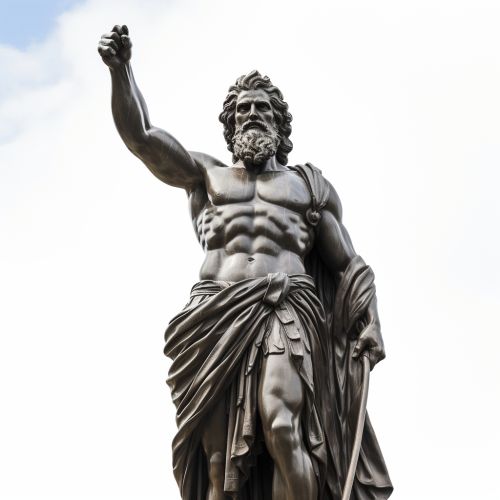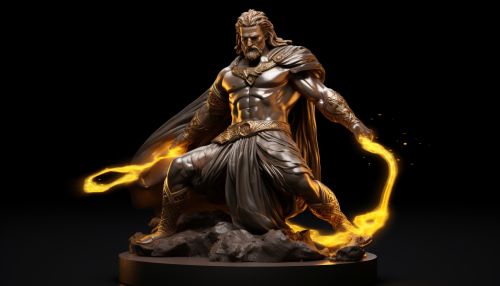Zeus
Overview
Zeus is the sky and thunder god in ancient Greek mythology, who rules as king of the gods on Mount Olympus. His name is cognate with the first element of his Roman equivalent Jupiter. His mythology and powers are similar, though not identical, to those of Indo-European deities such as Indra, Jupiter, Perun, Thor, and Odin.
Mythology
Zeus is the child of Cronus and Rhea, and the youngest of his siblings. In most traditions, he is married to Hera, although, at the oracle of Dodona, his consort is Dione. Zeus is known for his erotic escapades. These resulted in many godly and heroic offspring, including Athena, Apollo, Artemis, Hermes, Persephone, Dionysus, Hercules, Helen of Troy, Perseus, Minos, the Muses, and the Graces.


Cults of Zeus
In Greek religion, the worship of Zeus was widespread. He was honored with numerous sanctuaries and festivals such as the Olympic Games. His principal centers of worship were at Dodona, in Epirus, the land of the oak trees and the most ancient shrine, famous for its oracle, and at Olympia, where the Olympian Games were celebrated in his honor every fourth year. The Nemean Games, held at Nemea, northwest of Argos, were also dedicated to Zeus.
Zeus in Art
Zeus is frequently depicted by Greek artists in one of two poses: standing, striding forward with a thunderbolt leveled in his raised right hand, or seated in majesty. His symbols are the thunderbolt, eagle, bull, and oak. In addition to his Indo-European inheritance, the classical "cloud-gatherer" also derives certain iconographic traits from the cultures of the Ancient Near East, such as the scepter.
